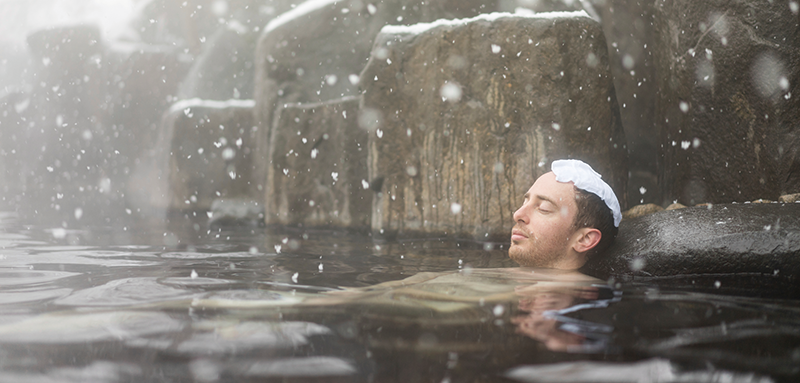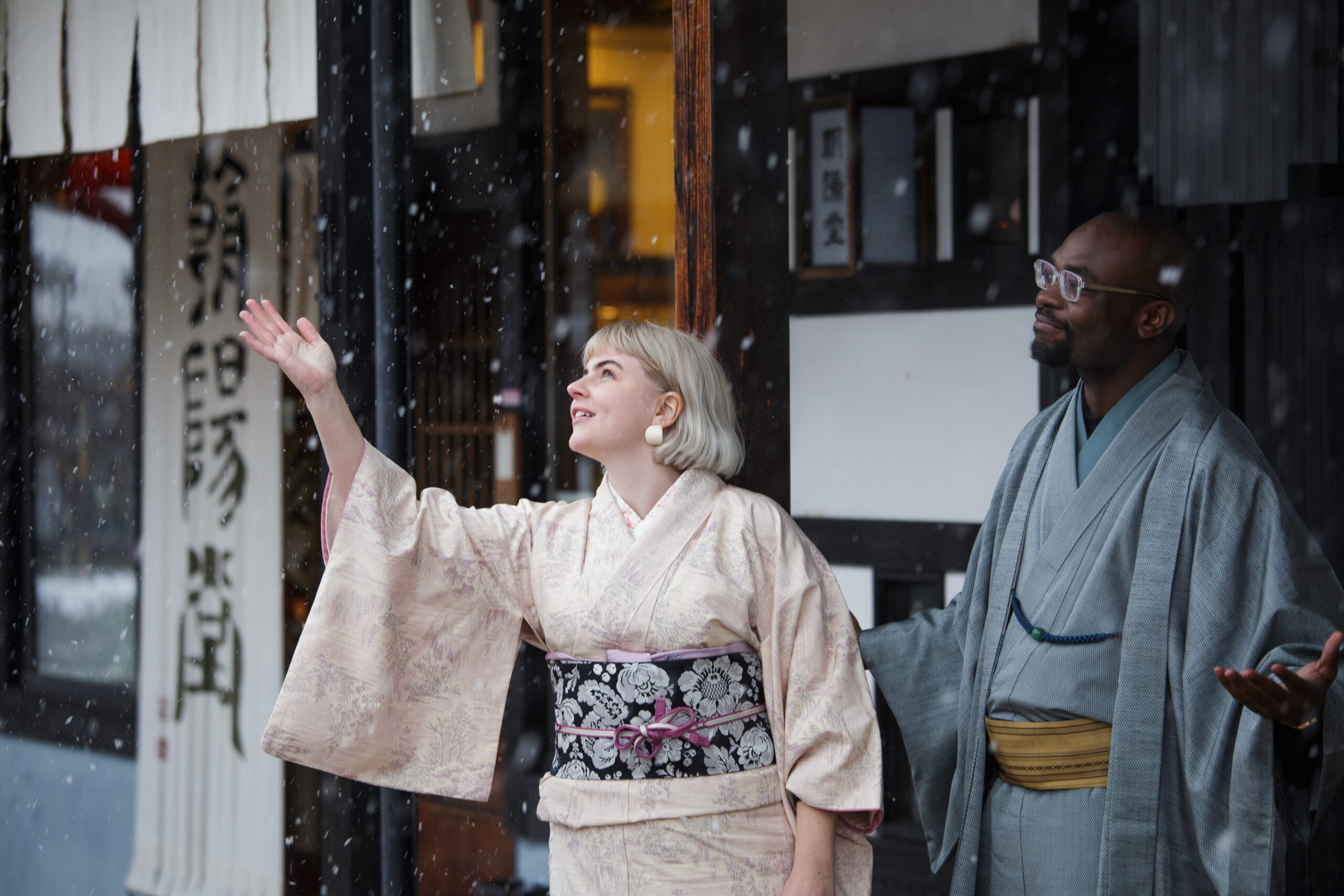By Matt Klampert
Did you know? The YUKIGUNI area of Niigata, Nagano, and Gunma has a rich history of legends and tall tales which have been passed down for hundreds of years to the present day. These local legends are perhaps not as well-known as the story of Momotaro and the like, but they shed light on a part of history and culture of “hidden Japan” which is just as interesting. Let’s learn more about them!
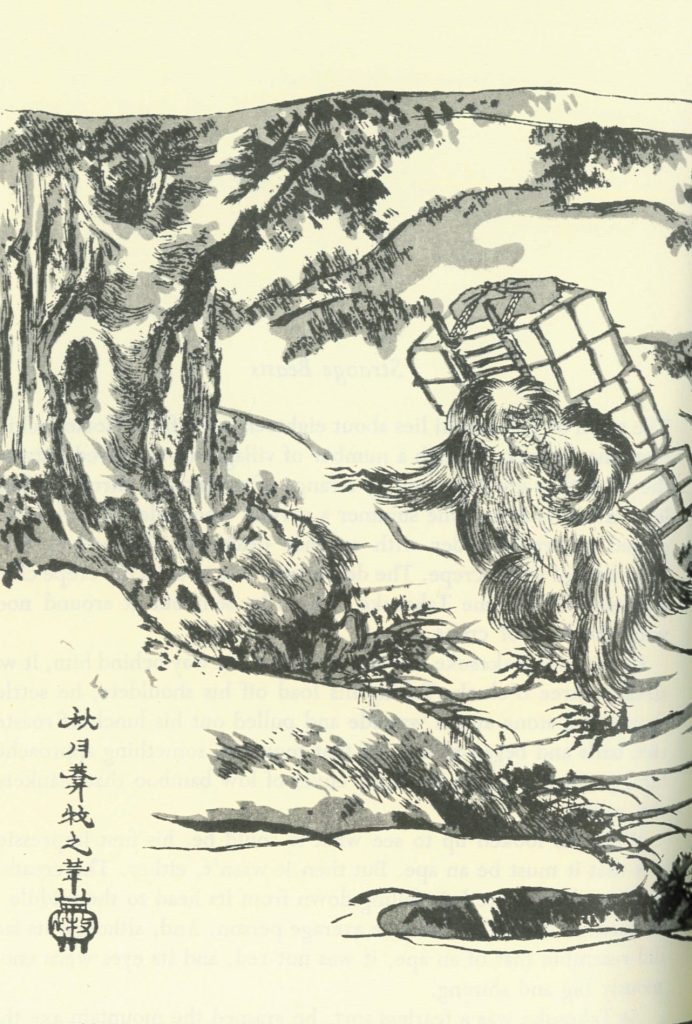
The Legend of “Yuki Otoko,” Japan’s Abominable Snowman
Though the name “Yuki Otoko” just translates to “snow man,” the legends surrounding this mysterious creature are more akin to a yeti in Western mythology. Yuki Otoko are somewhat well known in Japan, and have been shown in popular anime such as Yo-kai Watch. In YUKIGUNI, where they are said to come from, some local people still claim that they exist.
A Yuki Otoko is often described as a giant ape covered from head to toe in thick white fur with shining eyes. Rather than being aggressive toward people, they were said to be quite friendly, and would help travelers who became lost in the mountains. However, this old wives’ tale was often used to scare misbehaving children. These days, Yuki Otoko is also well known as a symbol of Minamiuonuma’s Aoki Sake Brewery, from which there is a popular sake that bears the same name. Aoki Brewery itself is a well-loved local brewery, and YUKIGUNI sake is famed for its quality and crisp taste. Click HERE to learn all about it.
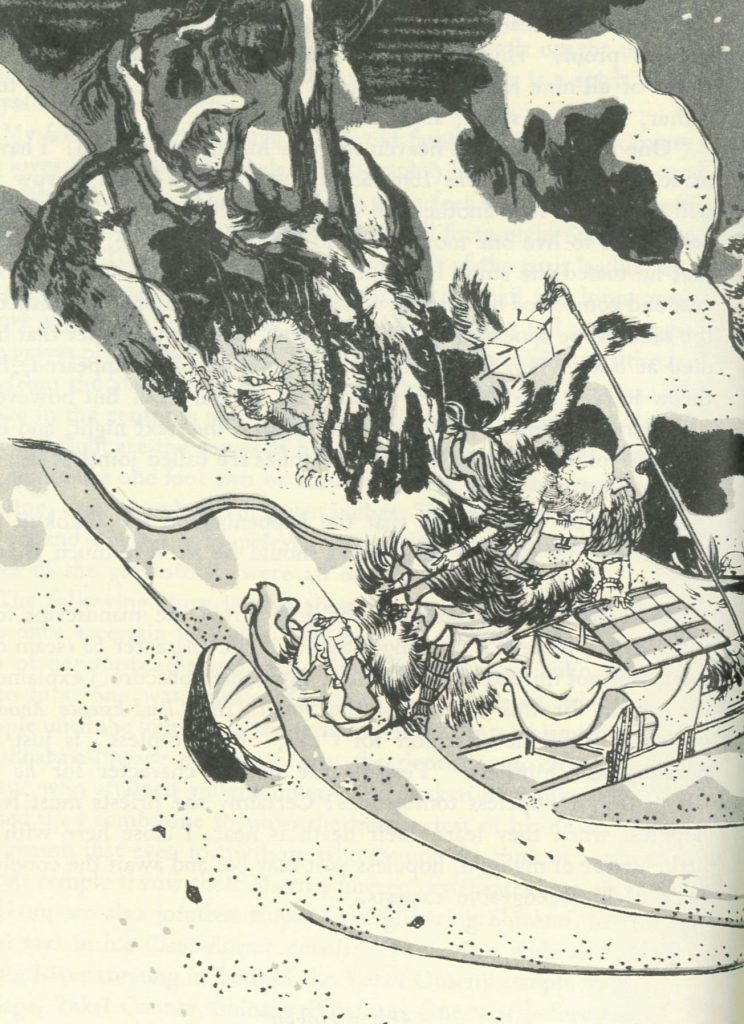
Abbot Hokko of Untoan Temple
Untoan Temple in Minamiuonuma has long been considered to be one of the “four great temples of Echigo.” Hokko, who was an abbot at the temple during the 16th century, was said to have possessed great spiritual power, to the extent that many legends have grown up around him. One such tale relates to a funeral procession that was interrupted by a demonic Kasha- a giant cat with a burning tail, which Hokko fought in a snowstorm, and finally succeeded in banishing. Hokko’s robes were said to have granted him powers, and are still kept at Untoan, where they are regarded as holy relics.
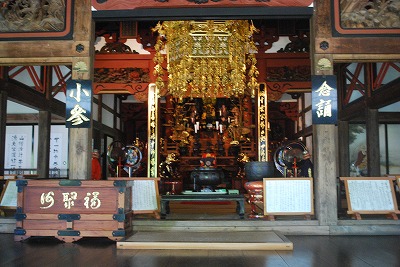
The famous Buddhist monk Kochi was also said to have visited the historical Echigo Province, especially Saisoji Temple in the nearby town of Teradomari, now a part of Nagaoka City. When Kochi died, his mummified body was not buried, and is said to have been somehow preserved for well over 600 years to the present day.
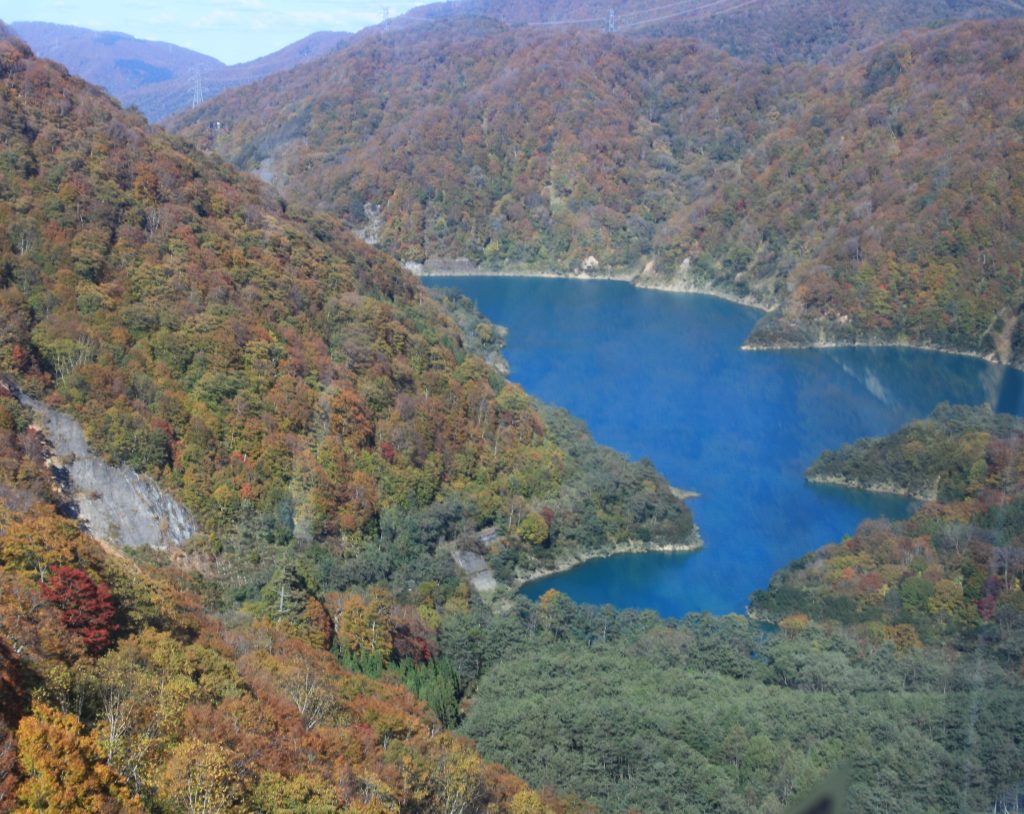
The mysteries of Mt. Naeba
There are many local legends associated with Mt.Naeba in Yuzawa. This mountain is now a symbol of YUKIGUNI and the site of the Fuji Rock Festival, but was equally important in antiquity. People were said to have settled somewhere on the mountain hundreds of years ago, and left behind many old treasures in a so-called “Dragon Cave.” Some locals with roots in this area still claim the existence of this cave, but as the road has been blocked and the paths overgrown for some time, nobody seems to quite remember where it is!
There is also a stone monument on the top of the mountain called a “daigongen,” which is allegedly not manmade but instead somehow manifested there naturally. You can even see it yourself at the Naeba Shrine. Mt. Naeba also has many trails with beautiful old katsura trees that are great to hike around during the green season. To learn more about hiking in YUKIGUNI’s mountains click HERE.
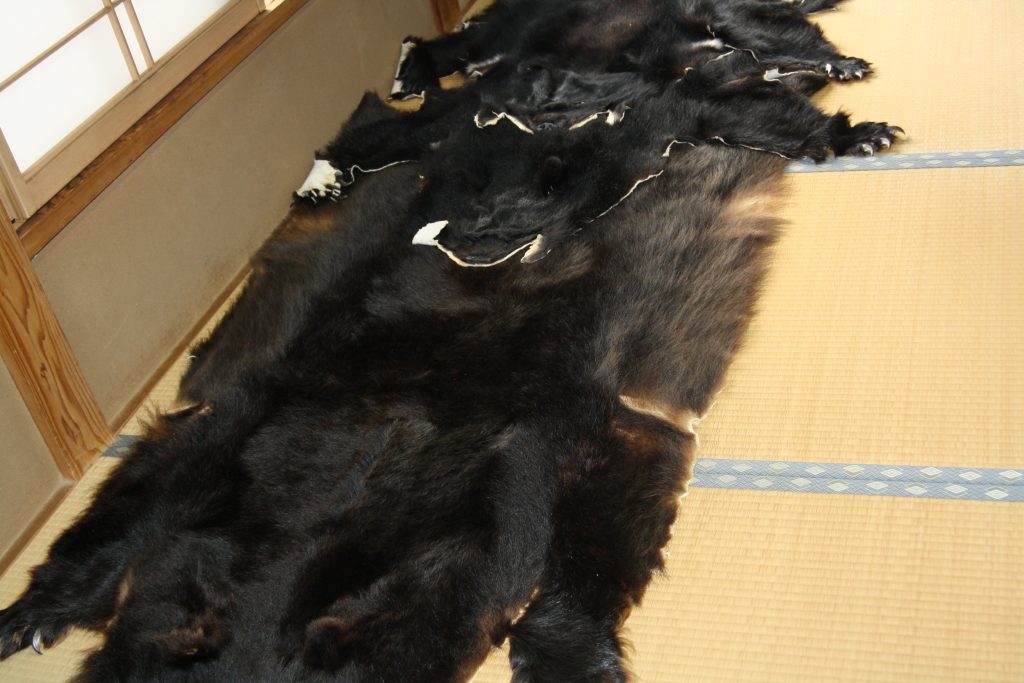
Saved by the bear
In YUKIGUNI, people have coexisted together with many kinds of wildlife, and often have many interesting stories to tell about them. The merchant and famed local historian Bokushi Suzuki claims that he was told a first-hand account from a man named Kyuemon who went to collect firewood and fell into a ravine. There, he found a cave, and in the cave a giant bear. Entreating the bear to save him, the bear kept him warm and fed him crushed ants. After some time of carrying on in this fashion, the bear made a path through the snow for the man to follow. Evidently the man had been missing for over a month! Though we don’t recommend you look for bears to befriend, you can take a winter snowshoe tour to learn about tracking animals from local experts. Click HERE for more information.
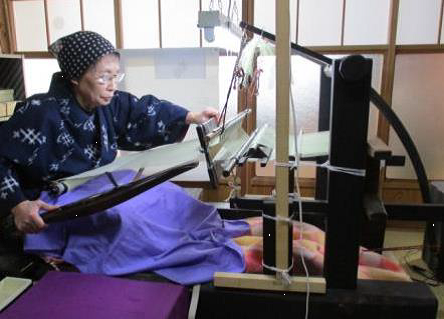
Spirit of the Loom Chamber
In the past, weaving highly prized Echigo Jofu cloth was thought to almost be akin to a holy ceremony. Weaving was an important way for the poor peasant families of YUKIGUNI to earn extra money, especially during times which they could not farm, and so weaving women became very important to the local culture. There are many traditions the weaving women were supposed to observe. Girls began to weave in their teenage years and were said to reach their peak by their early twenties.
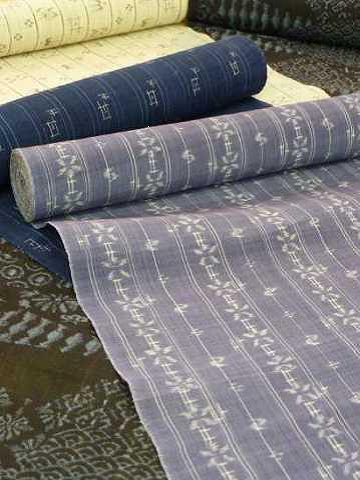
The loom chamber almost took the significance of a shrine, and only weaving women were allowed to go inside. There were also strict purification rituals they had to follow. This was because loom chambers were actually said to be inhabited by a spirit. There was a tale of a teenage girl who snuck out of the loom chamber one night to be with her beloved, but upon returning to the chamber forgot to purify herself. Because of this, she became deathly ill, until the boy, learning of her plight, confessed their indiscretion. He covered himself with icy cold water and prayed to the spirit, naked and freezing in the snow, until the girl recovered. It was said that they were happily married. To learn more about Echigo Jofu and the real people who still make it as it was done then, click HERE.

Learn more about the history of Snow Country
Besides the stories here in this article, there is plenty more to learn! The Yukigunikan Museum on Yuzawa’s onsen street is a great place to start, as is the Bokushi Museum. To see art inspired by the local nature, the Tomioka White Museum is another great choice!
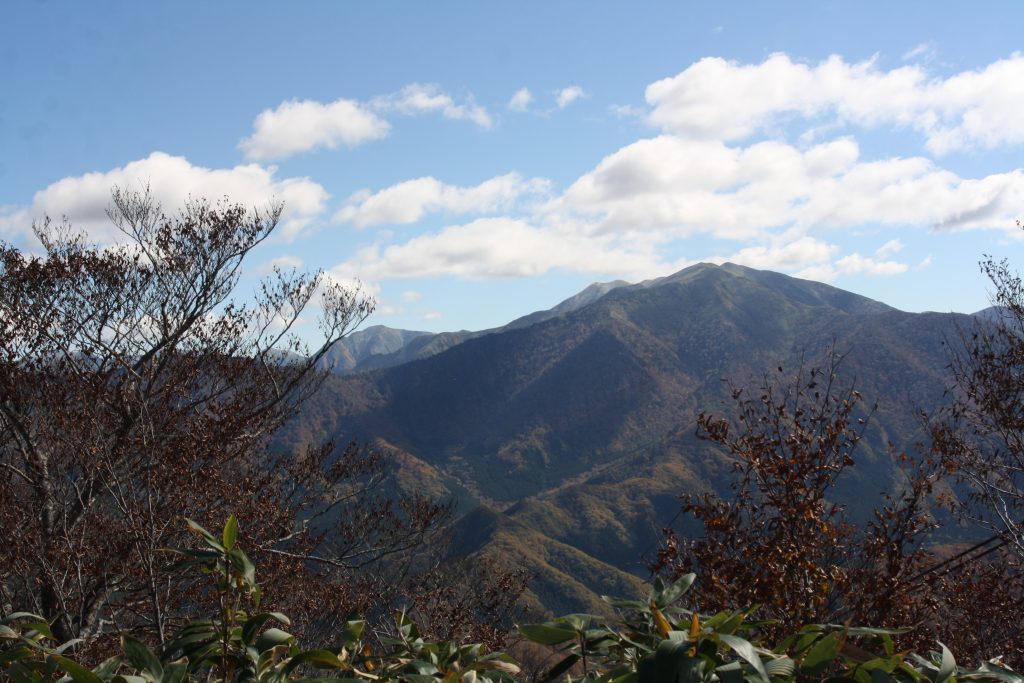
Information for Travelers
Untoan Temple
Address: 660 Unto, Minamiuonuma City, Niigata Prefecture 949-6542
Cost: 300 yen
Open 9:00 a.m. to 4:30 p.m., closed Wednesday
Naeba Dragondola
Address: 202 Mikuni, Yuzawa, Minamiuonuma District, Niigata 949-6212 (Naeba Prince Hotel)
Cost: 3500 yen
Open 9:00 a.m. to 3:00 p.m. during the fall
Yuzawa Museum of History and Folklore (Yukigunikan)
Address: 354-1 Yuzawa, Minamiuonuma District, Niigata Prefecture 949-6101
Cost: 500 yen for adults, 250 yen for children. Group discounts are available
Open 9:00 a.m. to 5:00 p.m., closed Wednesday

